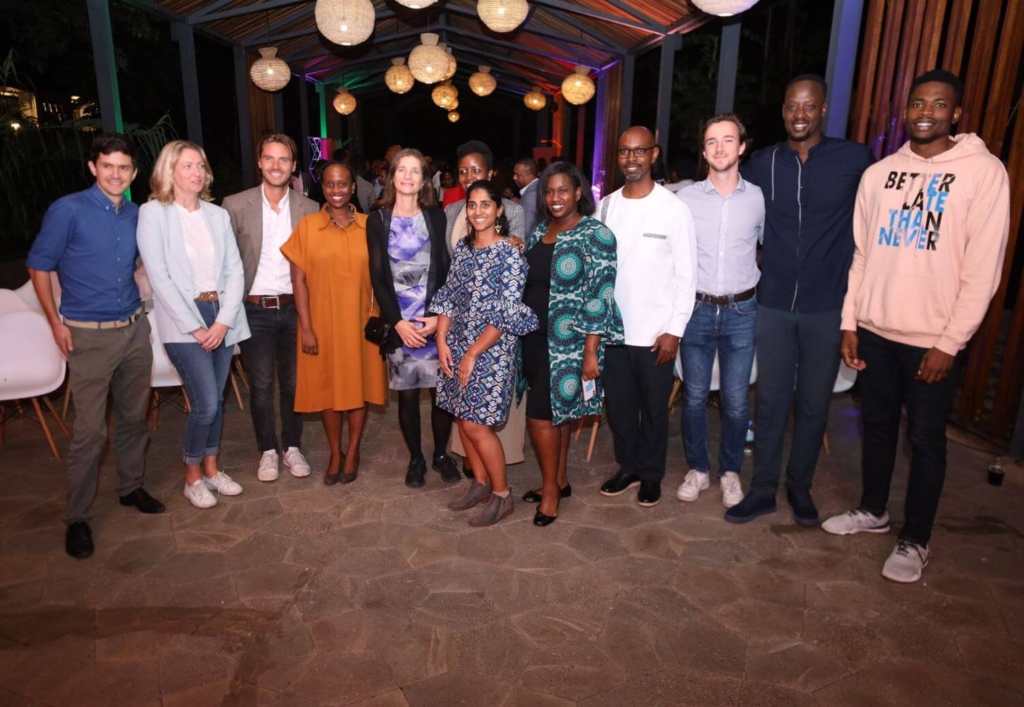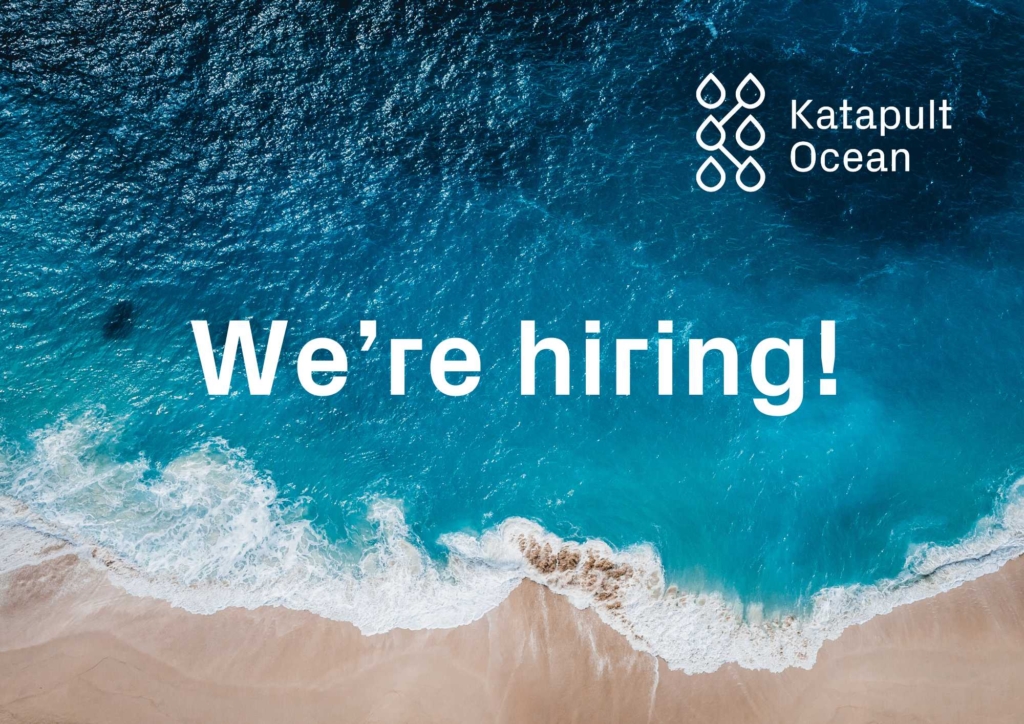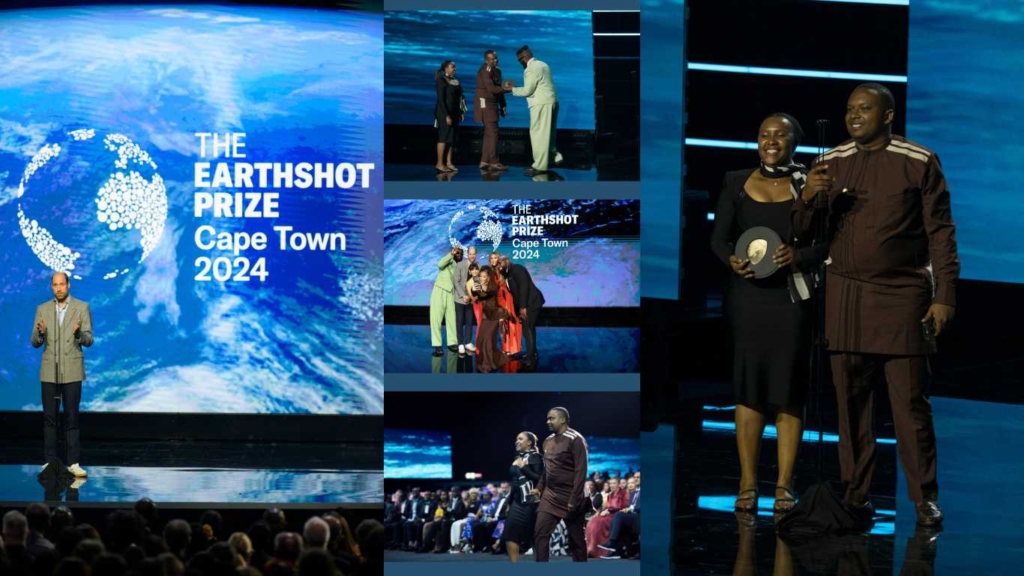Diversity, togetherness and climate: three lessons from Katapult’s launch in Rwanda

In November, Katapult’s second outstanding cohort of Africa-focused climate and agriculture entrepreneurs gathered for our accelerator program kickoff in Kigali, Rwanda. From smallholder farmer marketplaces to financial and healthcare inclusion, via insect protein and regenerative desert farming, these diverse and inspirational teams are working to solve some of the world’s most pressing climate adaptation and mitigation challenges. The Katapult Africa Seed Fund investing in these startups also marks the first ever impact venture capital vehicle domiciled in Rwanda. And all in the spirit of collaboration, we were joined by our Rwandan and global partners, forward-looking investors, and the brilliant Katapult team.
The launch week, and first 8 weeks of the program, had us reflecting as a team on three key takeaways that inspire us to do what we do, and will provide key areas of focus for Katapult Africa in 2023: diversity, togetherness, and the climate imperative.
Diversity
As early-stage investors, we have the privilege of engaging with large numbers of companies, innovations and impact entrepreneurs. We believe that with this privilege comes the duty to intentionally back intersectional diversity in teams, across our portfolio, and through the partners that we work with, and that our support, performance and impact will be better for this. In particular, the creativity required to overcome the immense challenges being tackled by these impact entrepreneurs is especially well served by the ‘creative friction’ that comes with diversity.
The launch of our Rwanda fund and accelerator cohort represented a positive start, and highlighted the benefits in diversity. Our cohort contains both superb cognitive diversity, as well as founders with backgrounds as farmers and researchers, lawyers and doctors, and plenty of techies with previous entrepreneurial and ecosystem experience. ⅓ of our cohort companies are female-founded (at least one female single or co-founder), and ⅓ of core attendees at the launch week (including company representatives, core program mentors and the Katapult team present for the launch) were female. Female under-representation remains a pervasive issue in African startup finance, whilst there is clear evidence to suggest that climate change affects women more negatively compared to men, particularly in the core areas of our investment mandate – agriculture production, and food/nutrition security.
We also welcomed a geographically diverse cohort; Senegal, Morocco, and Madagascar are new primary operating markets for companies within Katapult’s portfolio, bringing our investment coverage to 12 African markets in total. Mentors and facilitators with diverse expertise from operating as, advising and serving impact entrepreneurs on the continent illuminated the week and are supporting our startups, including Bili and Seyi from Algrowithm, Peter from Earlybird Venture Lab, Tumi from the Tumi Academy, Tobi from Venture for Africa and Simon from Groundbreaking Africa to name but a few.
We must – however – go further and do better. In 2023 we have goals to grow the diversity of our team, portfolio, partners and investors to spur further creativity, delivery and impact.
Togetherness and ecosystem
We believe that this diversity also breeds togetherness: bringing different people, groups and interests together for change is inspirational and hopeful. This made for compelling and creative exchange during our launch week in Kigali. Critical themes of impact strategy, fundraising, growth engineering, government relations and talent/team building were explored from multiple angles, with constructive disagreement and challenge balancing curiosity and collaboration. Along with our cohort startups, mentors and the Katapult team, groups who gathered and exchanged to such effect in Kigali include our core partners TBI, Smart Africa and Norrsken (whose incredible Norrsken House Kigali was the backdrop to the launch week – an aspirational and inspirational hub), whose diverse and cross continent networks add complementary value.
The ‘ecosystem’ for impact venture investing with a climate focus in Africa is developing fast, and we aim to accelerate this ecosystem collaboration through bonds we build. We are proud to count diverse institutions amongst the investors in this first fund, fusing the approaches, networks and expertise of Nordic and Rwandan, private and public sectors, and NGO to pension fund capital. This was done through engaging with Norwegian DFI Norfund, Rwandan pension fund RSSB and global NGO SOS Barnebyer as lead investors, building on our collaboration with Mauritian corporate investors from our first cohort fund earlier in 2022. The vision of both Rwanda and the Norwegian government through Norad – both key supporters of the Katapult Africa initiative – seeks to encourage the development of this ecosystem; our launch week session led by TBI on government relations brought together public and private sectors in a unique and optimistic way. As Katapult Africa grows, we expect that these network effects and exchanges will compound over time, not least through the togetherness and collaboration amongst our growing portfolio that now stands at 33 Africa-focused companies.
The Climate Imperative
And the time to accelerate and capitalise on this collaboration for climate in Africa is now. The launch of our program happened to the backdrop of COP27, held for the first time in over a decade in Africa. Through a dedicated Africa Day, and the strong contingency of African nations amongst the vulnerable countries to be supported through the landmark ‘loss and damage’ funding agreement, the spotlight was firmly on the continent in Sharm El Sheikh. Along with recent progress on furthering global biodiversity goals at the Biodiversity COP15 this autumn, the imperative for action and opportunity to contribute to climate adaptation and mitigation is stronger than ever.
For Katapult, this means we must go further, faster, more intentionally, and in a way tailored to Africa – to complement our global climate and ocean competencies – in 2023. Specifically, we maintain that – as outlined by our brilliant mentor Yvonne Pinto earlier in 2022 – inclusive and sustainable agricultural systems is key to addressing adaptation and mitigation challenges on the continent, and we will double down our focus on food systems in 2023. However we also recognise the breadth of challenges, opportunities and solutions required to address these challenges in a meaningful and systematic way. Already in this cohort we have broadened out to support companies addressing the intersection of financial services, healthcare and logistics with agriculture and food systems. In 2023 we will aim to work with more ambitious impact entrepreneurs working on transformative and inclusive services (including finance, data and marketplaces), and efficient supply chain and infrastructure solutions (including transportation, storage/distribution, construction and renewable energy). We want to accelerate impact across systems for climate.
Diversity, collaboration and the climate imperative, bound together by African impact entrepreneurship. If these themes excite you, then save the date for our Katapult Africa Investor Day on 7 March where you can meet this amazing cohort, and do reach out to engage with us on our mission in 2023!
Written by Danny Smith, Regional Director Oslo, Katapult Africa
On Tuesday 7 March, Katapult Africa will host its annual Investor Day, showcasing 9 high-impact agri-, food- and climate-tech companies. Learn more and register here.

